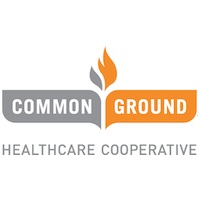
Trump administration proposes allowing states to block grant Medicaid

President Donald Trump’s administration released guidance Thursday that aims to allow states to block grant Medicaid, drawing concerns from Democratic lawmakers who questioned the legality of the plan and said it would reduce health coverage.
The guidance allows states to request capped funding for Medicaid for adults under the age of 65 who aren’t disabled. Centers for Medicare and Medicaid Services Administrator Seema Verma said Medicaid faces a “looming cost crisis” and that the guidance will put it on a “sustainable path.”
“For the first time, it aligns financial incentives to improve quality of care and health outcomes for Medicaid adults by giving states unprecedented flexibility to administer and design their programs to meet this population’s unique needs,” she told reporters. “In exchange for this flexibility, states accept greater accountability for managing the program and demonstrating real results.”
Verma said beneficiaries will have minimum benefits, eligibility protections and limits on out-of-pocket expenses. States will either be funded through a per-enrollee budget or a total budget for all expenses, and federal officials would work with them to establish a baseline that grows at appropriate rates, she said.
In a letter to Verma and Health and Human Services Secretary Alex Azar sent before they announced the plan, 36 House Democrats, including Rep. Gwen Moore of Milwaukee, said the policy’s goal is to cut benefits and limit access to care.
They said the approval of such waivers could conflict with federal law as CMS can’t determine alternative state payments since that power and responsibility lies with Congress.
“Guidance providing states a roadmap to obtain Medicaid block grant waivers not only defies Congress and federal Medicaid statute but if implemented, will threaten healthcare for millions,” they wrote.
Verma said that they feel the program is on “very, very strong legal standing.”
“While those who want Medicaid to be business as usual are willing to weaponize the legal system to thwart state innovation at every turn, our administration is committed to protecting and improving the lives of Medicaid recipients,” she said.
Philip Rocco, a Marquette University political science professor, said the policy might not survive legal scrutiny.
He noted that the administration is relying on Section 1115 waivers, which allow the federal government to approve changes that meet the goals of Medicaid. But he noted that a separate section of the law requires the federal government to pay a match. That section can’t be waived, he said.
Rocco also said that courts haven’t held up Medicaid work requirements approved by the administration because they haven’t met the objectives of the Medicaid to furnish medical care. There could be an injunction by the courts if states try to put the policy in place and the federal government can’t show how the guidance helps meet that objective, he said.
The new approach differs from previous block grant proposals because it’s optional, he said. It’s difficult to get block grants through Congress since it’s “incredibly politically toxic.”
He noted that the policy might give political cover for conservative states to pursue Medicaid expansion.
“It sort of squares that political circle,” Rocco said. “On the one hand, it would allow governors in states that haven’t yet expanded Medicaid to take expansion, taking credit for that in the short term, while in the long-term doing something that conservatives have always dreamed of, which is converting Medicaid from an entitlement program to a block grant.”
Rocco said it’s possible that the plan gives Republicans in Wisconsin’s Legislature “something to bargain with” in discussions over Medicaid expansion that they didn’t have before. But he said the idea wouldn’t go far with Democratic Gov. Tony Evers, who’s pushed for expanding the program.
Representatives for Republican legislative leaders and Evers’ administration did not provide comment on the policy by deadline.
Rocco also drew a distinction between long-term and programmatic cost drivers. He noted that healthcare spending is increasing for all payers because there’s no way of controlling medical costs in the country.
“Medicaid grows more slowly than Medicare,” he said. “It grows more slowly than private payers. So the idea that Medicaid is the thing that’s unsustainable is like a three-card monte. What’s unsustainable is the growing cost of care over time for all payers.”
This article first appeared in the Wisconsin Health News daily email newsletter. Sign up for your free trial here.










.jpg?bwg=1612548324)




















